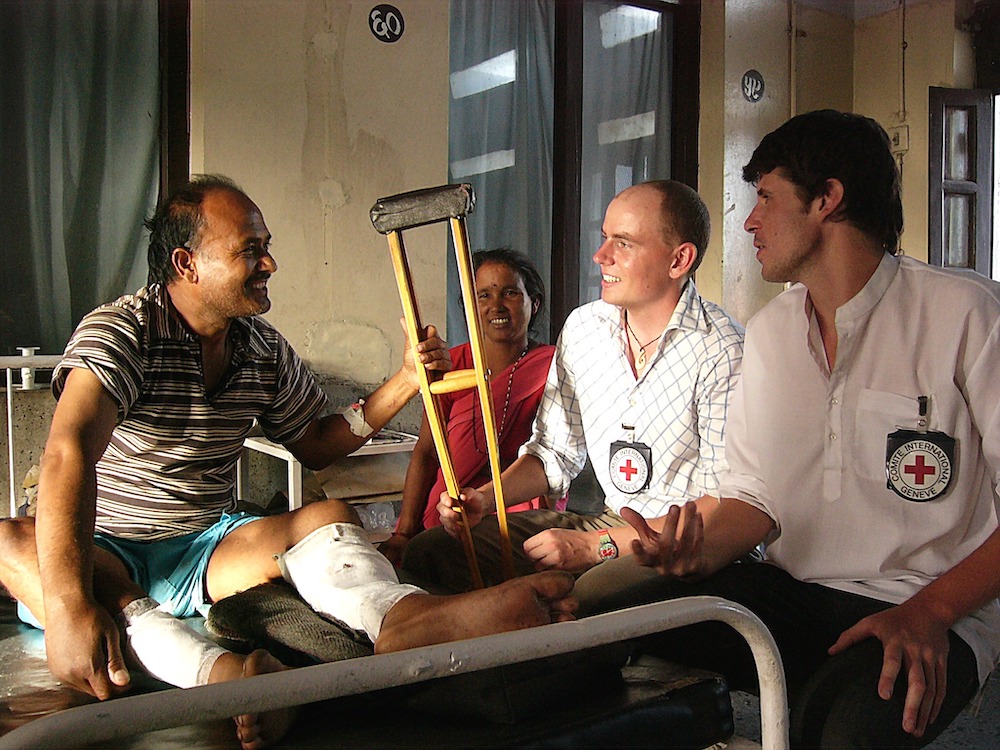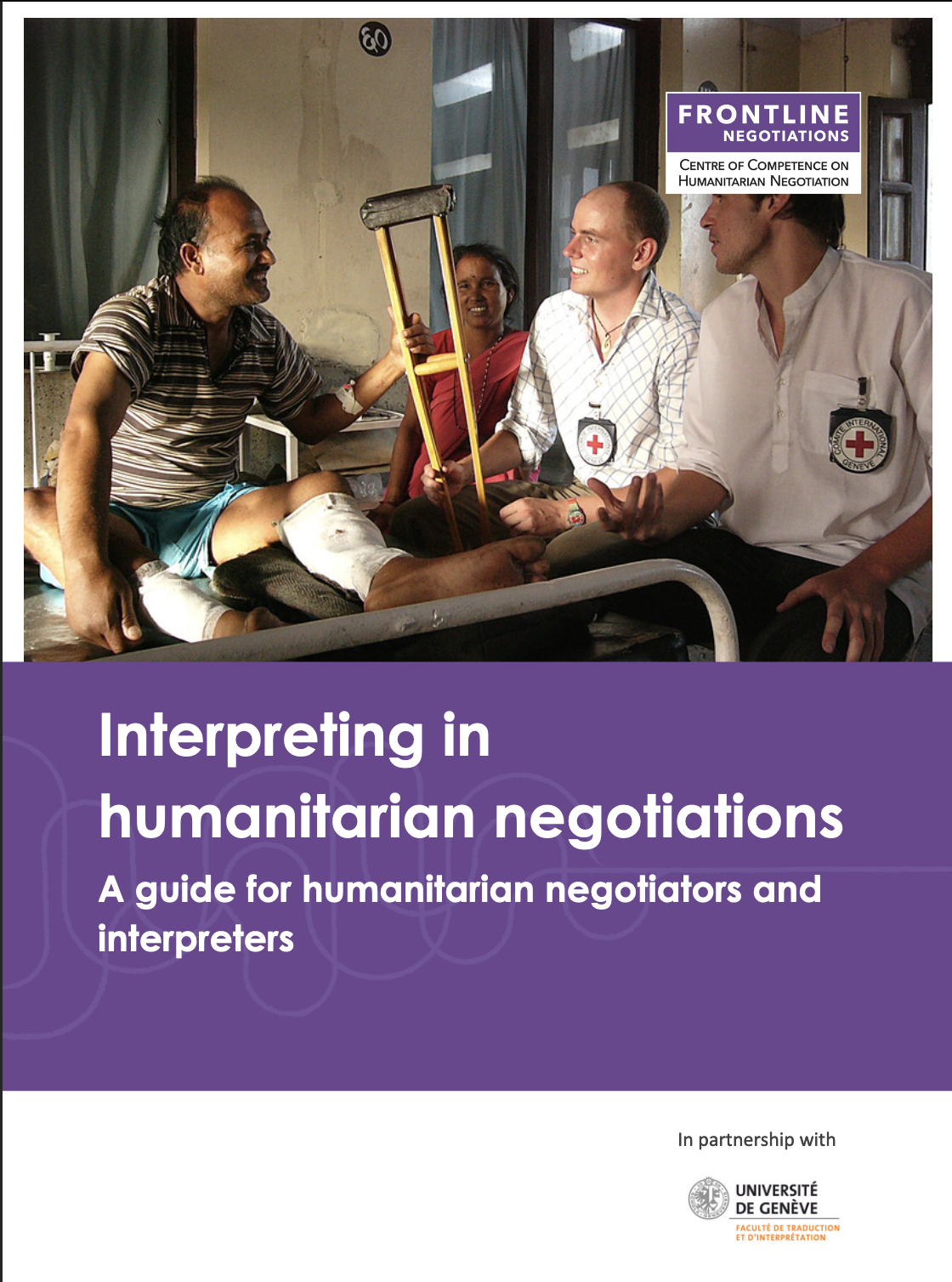
Nepal. Nepalgunj, Behri Hospita. An ICRC delegate and an ICRC translator hand over crutches donated by ICRC. Photo credit: ICRC
If you’ve been deployed to a region or country where you don’t speak the local language, you may find yourself in need of negotiating with the help of interpreters. We know that negotiating is hard enough in its own; not speaking the language of your counterpart makes it even harder.
What are the specific challenges that come with communicating through an interpreter?
Here at the Centre of Competence on Humanitarian Negotiation (CCHN) we talked to experienced negotiators and interpreters, as well as with Prof. Lucía Ruiz Rosendo from the Interpreting Department at the University of Geneva. As a result, we put together a list of the most common mistakes when you negotiate with the help of interpreters (and how to avoid them!).
1. Forgetting to clarify the role of the interpreter in the negotiation.
Humanitarian interpreters may actually wear different “hats” within your team; they may themselves be negotiators. For this reason, one of the most important things to do as you approach a negotiation process is to clarify the role the interpreter will have within the negotiation team.
Keep in mind that the role of the interpreter is only to communicate across the language barrier, and not to intervene as a party to the negotiation.
Remember that interpreting is a difficult job with its own professional standards, and the interpreters should observe them even when they have different roles (e. g. negotiator, program manager, etc.)
2. Only briefing your interpreter at the last minute.
We understand that it’s not always possible to have a long briefing with your interpreter before a negotiation – but whenever possible, it is really important to arrange a meeting to prepare together. Provide your interpreter with information on the negotiation context, share information about the counterpart, and go over your negotiation strategy.
Taking the time to establish a common vocabulary, clarifying terms and acronyms, and agreeing on their translation beforehand will help avoid an inaccurate or misleading interpretation.
During your preparation, ask your interpreter about relevant cultural norms and dress codes. You will avoid being unintentionally disrespectful to your counterpart.
3. Speaking too fast or for too long without taking breaks.
Your conversation flow will be different when you communicate with the help of an interpreter. It’s very important to speak slowly, use short sentences and simple language to help your interpreter retain the most important information and communicate it correctly.
“What some international staff don’t understand is that some words cannot be interpreted one on one, but that you have to explain a word in several sentences. When this happens, you can get angry looks from the negotiator as they think that you are not interpreting accurately. Also sometimes, I find myself being pulled into a high-level meeting to interpret without any preparation about the topic beforehand. Yes, I am a native speaker but some technical terms need to prepared before, especially if you are dealing with dialects.”
— Resident local staff who is asked to interpret on occasions
4. Addressing your interpreter instead of your counterpart.
When you speak with someone who understands your language, you naturally address them directly. This should also be the case when you are negotiating with the help of an interpreter. Speak directly to your counterpart (as in: “I would like to ask you…”) and not to your interpreter (for instance: “Please ask my counterpart if…”). This shows respect and consideration and clearly establishes them as your interlocutor in the negotiation.
5. Not reading our guide for humanitarian negotiators and interpreters!
To make your job (and that of your interpreter) easier, we put together a guide to help you navigate and avoid the most common mistakes when negotiating with the help of an interpreter.
Read to guide to discover practical advice on what to do and what not to do before, during, and after a negotiation. We suggest both negotiators and interpreters use it as a support document to prepare their negotiations – preferably together!
Interpreting in humanitarian negotiations: a guide for humanitarian negotiators and interpreters
The objective of this guide is to provide practical advice for humanitarian negotiators and interpreters on how to best work together and reach a good negotiation outcome.
The advice presented in this guide is the result of interviews conducted by the CCHN with humanitarian experts, experiences shared by members of the
CCHN, and the collaboration with Prof. Lucía Ruiz Rosendo from the Interpreting Department at the University of Geneva.

